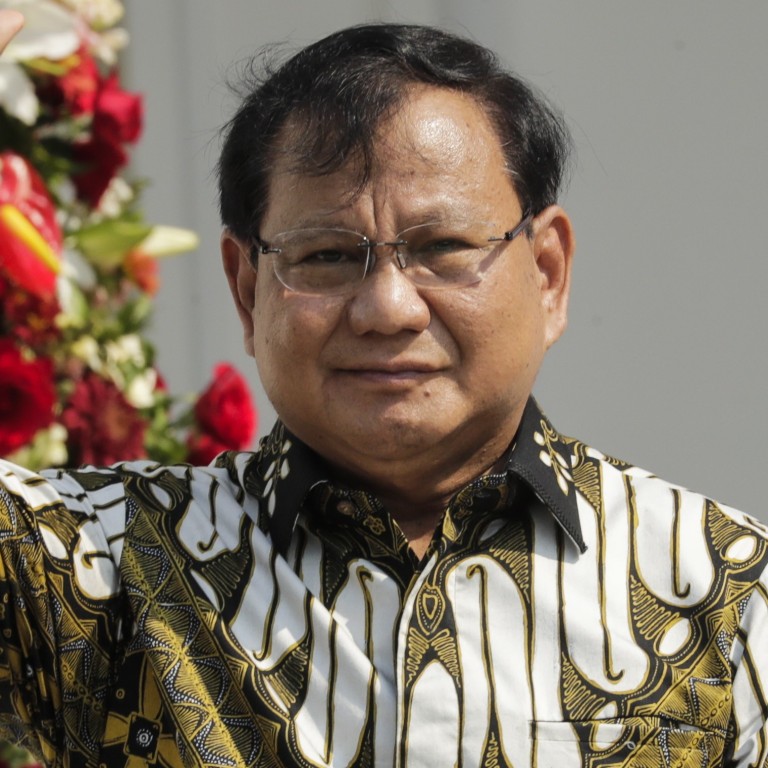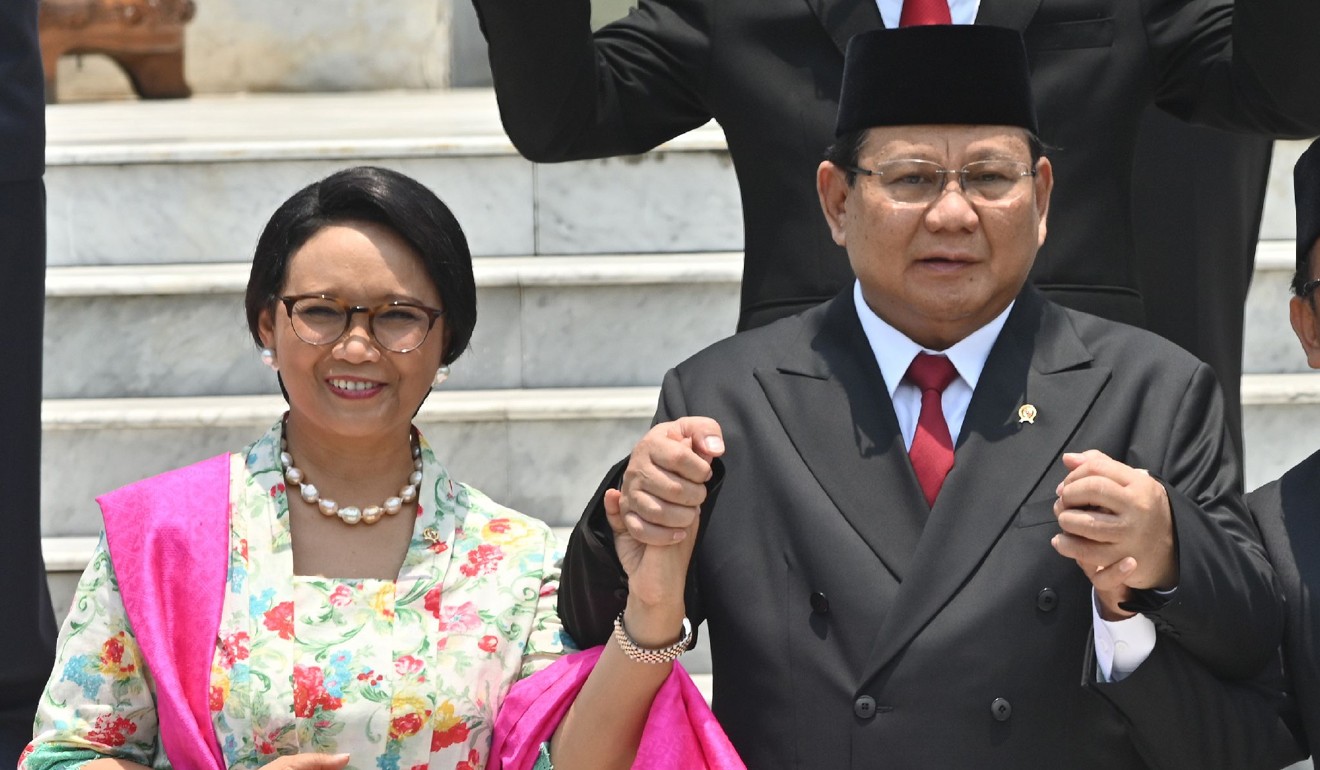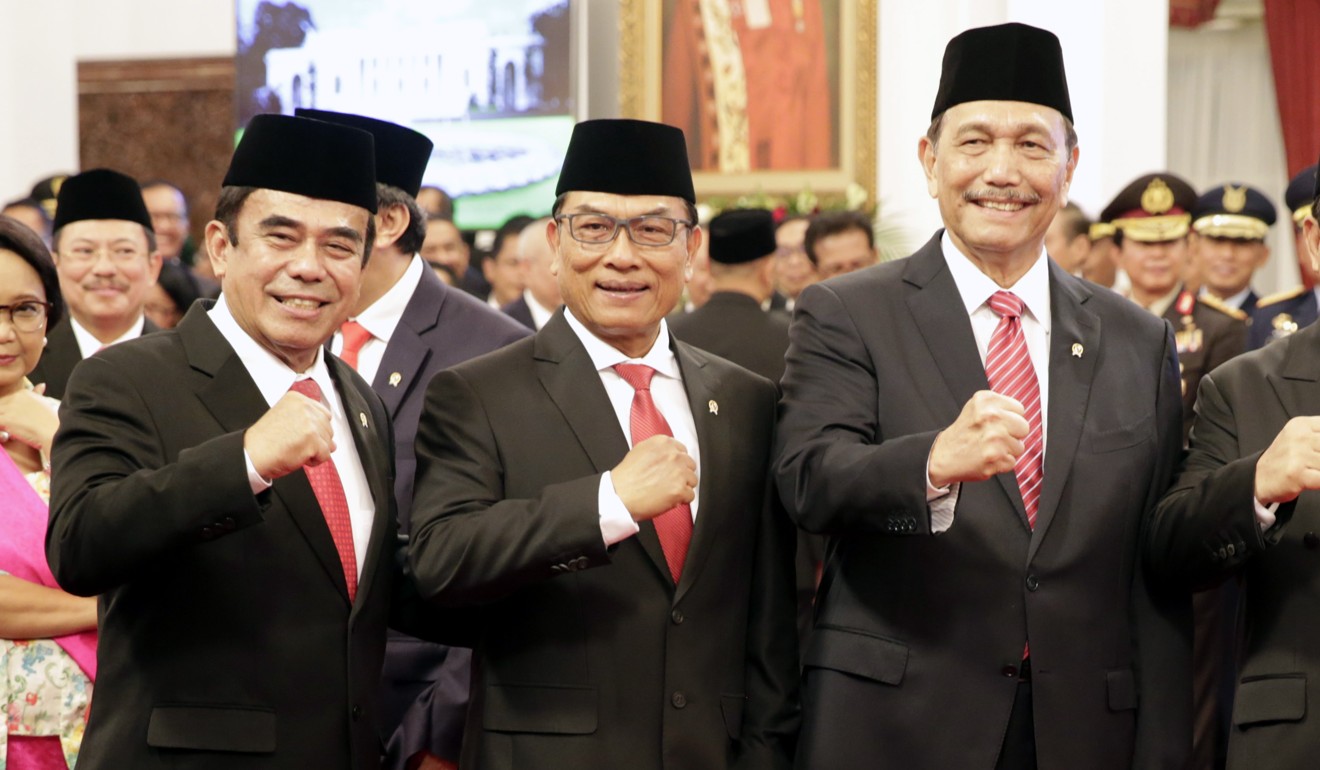
Analysis | Should China be concerned about Indonesia’s new defence minister, Prabowo Subianto?
- Prabowo, a former general, was suspected of playing a role in the May 1998 riots that targeted Chinese Indonesians
- His ambivalence towards China will continue but he cannot turn back the clock on Indonesia’s growing security ties with its neighbour to the north
After a brief exile, Prabowo then founded the Gerindra party in 2008 and has sought the presidency ever since. His elevation into the defence ministry – his first public office as a civilian – will have profound consequences for civil-military relations and defence policymaking.
He is likely to retain his chairmanship of Gerindra, the third-largest party in the national legislature, and it is likely to field a presidential contender in 2024. He is also surrounded by influential retired generals. Given his extensive ties to the Army Special Forces, which he commanded in 1995, Prabowo has become the most powerful defence minister in over two decades.
Jokowi taps ex-generals for defence and religious affairs posts in new cabinet
While the defence minister himself does not have operational command and control over the military, the ministry does control its budget and formulates broader strategic policy.
And yet, Prabowo has occasionally been reconciliatory on China as well. Last year, he characterised Indonesia’s ties with China as “very important” and during one of the presidential debates earlier this year, he said Indonesia could learn from China on how to reduce poverty.
Four steps for Jokowi to save Indonesian democracy
On the other hand, he will also inherit Indonesia’s growing security ties with China – along with those with other powers such as Australia, Japan and the United States. As the country’s chief defence diplomat, Prabowo cannot easily turn back the clock on these ties.
But if the Americans impose sanctions on Indonesia’s purchase of Russian arms, or if Prabowo cannot even enter the US over his human rights record, he might turn more to China and other world powers. Indeed, given Indonesia’s sluggish defence transformation process, diversifying strategic engagements might be a necessary first line of defence.

Jokowi also installed other “balancers” within the cabinet to contain Prabowo if necessary. These include Mohammad Mahfud as coordinating minister for political, legal, and security affairs, who leads the broader security establishment, including the defence ministry. Mahfud, a constitutional law professor, was a defence minister in the early 2000s, and later served as chief justice of the Constitutional Court.
Luhut Pandjaitan, meanwhile, is a decorated retired special forces general who was Prabowo’s senior in the military. As was Jokowi’s new minister for religious affairs, retired general Fachrul Razi. He was a former deputy commander of the military and a member of the board that recommended Prabowo’s discharge.

Prabowo’s elevation is unlikely to overhaul Indonesia’s China policy. Stronger economic ties will continue to underpin the bilateral relationship with diplomatic balancing and security partnerships following suit.
The new defence minister might take a stronger public stance on challenges to Indonesia’s sovereign rights, including in the North Natuna Sea. But others in Indonesia’s China policymaking circles could well provide a stabilising influence.
In the end, Prabowo might just have to learn to work with others to execute the president’s wishes – something he is not yet accustomed to doing.
The writer is a senior researcher at the Centre for Strategic and International Studies (CSIS) in Jakarta, Indonesia.

